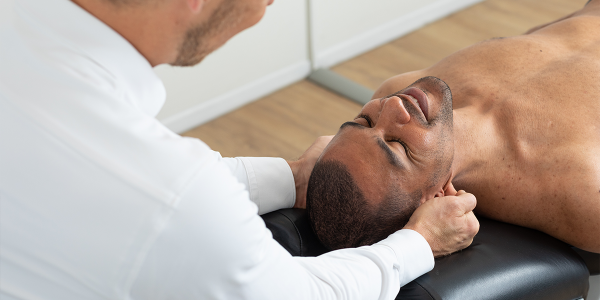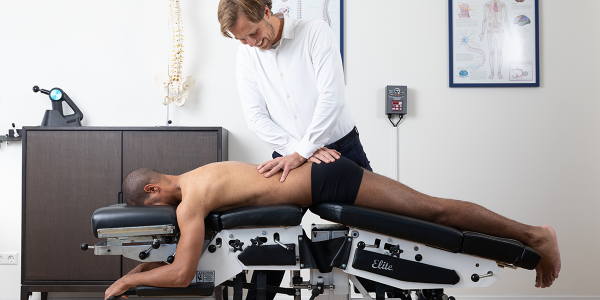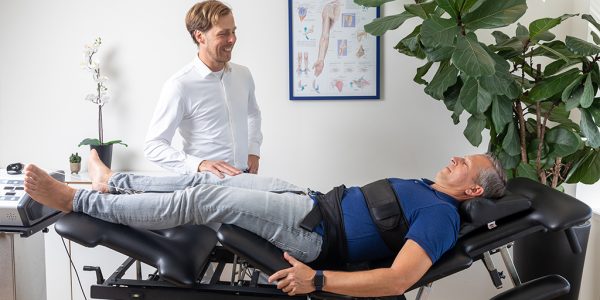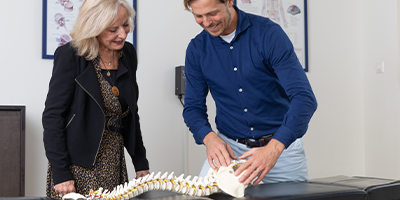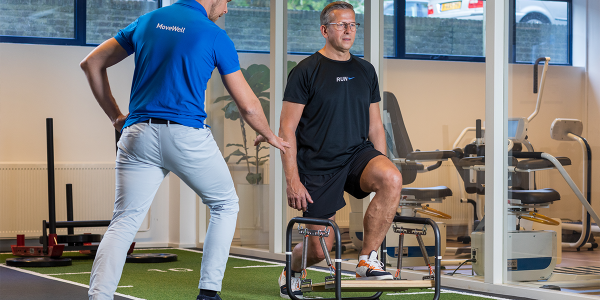Intervertebral discs are a kind of cushion between the vertebrae. Over the years, small cracks can develop in these discs. Gradually the intervertebral disc can bulge outwards. This is common and does not necessarily have to be a problem.
However, in a small group of people the bulge can become larger, often resulting in local inflammation. A nerve then comes under pressure. We call this a hernia.
A herniated disc causes pain in the back, but also in the leg where the nerve runs. In the case of a neck hernia, the brachial nerve can become irritated, which means that in addition to neck complaints, complaints can also be noticeable in the arms. We often compare pressure on the nerve to bumping your telephone bone, but the sensations can be different for everyone. The nerve is a kind of telephone cable and it depends on how and where this nerve comes under pressure. Typical symptoms include aching pain, sharp pain, stabbing pain, tingling, numbness and weakness.



